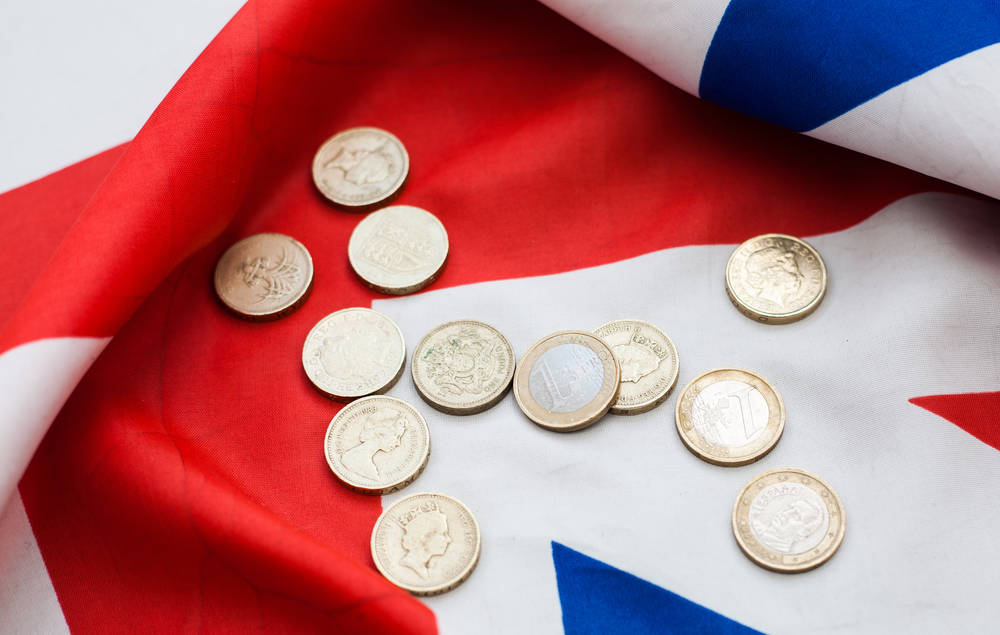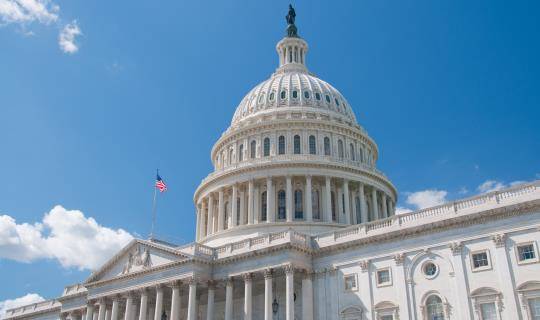VPAS—Where next?
By AmerisourceBergen
What is VPAS? No, it’s not a swear word, although anyone sitting in on recent management meetings in pharma companies across the United Kingdom (UK) could be forgiven for thinking so. VPAS is the UK’s Voluntary Pricing and Access Scheme for branded medicines. It is a voluntary agreement between the Department of Health (DOH) and the Association of the British Pharmaceutical Industry (ABPI). As the terms of the new scheme that is scheduled to start in January 2024 are being negotiated, what does this mean for biopharma companies?

VPAS, which replaced the previous Pharmaceutical Price Regulation Scheme (PPRS), started on 1 January 2019, and ends on 31 December 2023. Companies that do not join the Voluntary Scheme are subject by law to a statutory scheme, which has historically been associated with higher rebates and less favorable terms.
VPAS aims to keep the medicine bill affordable for the National Health Service (NHS) through a cap in growth of branded medicine sales that keeps expenditure on branded medicines within an agreed limit of a 2% increase per annum from 2018 through 2023. To achieve this, biopharmaceutical companies pay rebates on their sales back to the NHS on all expenditure above the capped limit. The cap applies to branded pharmaceuticals, branded generics, biosimilars, in vivo diagnostics, and blood products. However, to encourage innovation, new active substances are exempt for the first 36 months. This is remarkably similar to the PPRS which capped growth at 1.9% but was applied to new active substances from launch. Cynics might say VPAS is PPRS but with a new name.
The statutory scheme also works by limiting the growth in allowed sales of branded medicines. Since it took its current form in 2018, the allowed growth rate has been 1.1% per year, which is lower than the 2% for VPAS, resulting in a higher rebate.
In practice, the VPAS rebates have been steep, particularly in 2022 and 2023, which was attributed to the rise in activity post pandemic. The noticeably larger increase in 2023 is due to the agreed amendment to defer part of the 2022 payment to 2023.
| Year | VPAS Rebate |
| 2019 | 9.6% |
| 2020 | 5.1% |
| 2021 | 5.9% |
| 2022 | 15% |
| 2023 | 26.5% |
Unsurprisingly the industry is not happy; AbbVie and Lilly both left the VPAS at the beginning of 2023 in protest, and, as a result, they come under the alternative statutory scheme since the statutory scheme has historically carried an even higher repayment rate than VPAS and is 1% higher at 27.5% in 2023, leaving VPAS demonstrates the depth of feeling about the scheme.
Manufacturers of biosimilars and branded generics can also opt to join VPAS instead of the statutory scheme, but the British Generics Manufacturers Association (BGMA) is excluded from the VPAS negotiations. The BGMA has said that the rising VPAS rebate and less attractive statutory scheme will force manufacturers to pull out of the market, meaning prices will rise due to a lack of competition, which in turn means higher NHS expenditure and seems counterintuitive. The BGMA sought a judicial review process to challenge the decision to exclude them as a full partner in the forthcoming VPAS negotiations; however, this was dismissed by the High Court.
The BGMA released a white paper in June that states from 2019 to 2022, the value of on-patent medicine sales grew on average by 18% each year, whilst the value of off-patent sales grew on average by 2% each year. Part of this could be attributed to the average biosimilar selling price discount from the NHS maximum selling price being 72%, indicating competition is driving discounts. Though not at the negotiating table, the BGMA argues that the VPAS rebate should not apply to off-patent medicines that are at least 30% less than the originator list price.
The government has responded with a public relations campaign to justify VPAS; on 24 April 2023, a press release said that ‘thanks to VPAS, NHS England has’:
- Delivered a world-leading rollout of cystic fibrosis triple therapy.
- Secured first-in-Europe patient access for a number of new drugs, including a revolutionary lung cancer drug (sotorasib) and a life-extending prostate cancer drug (darolutamide).
- Negotiated commercial agreements to provide 3 new treatments, in less than 3 years, for children and adults with spinal muscular atrophy—the leading genetic cause of infant mortality.
- Struck a series of national deals for HIV treatments and preventative drugs that will support England to meet an ambition to become the first country to end HIV transmissions before 2030.
But whether these treatments would not have been funded without VPAS is debatable.
The ABPI is now negotiating the next scheme and is proposing a fixed rebate rate of 6.88% levied across all eligible NHS medicine sales to be paid by the industry. The ABPI says this would deliver over £1bn a year to the NHS—around £300m more than the average delivered under the current scheme prior to 2023. However, whilst the rebate payments may be £300m more, the drug bill is also increasing, so net savings to the government are unlikely to equal £300m. The DOH has said this is ‘completely unaffordable.’
An industry-funded ‘Investment Facility’ worth over £1 billion over 5 years is also proposed, which would be provided by a 1.5% premium on NHS sales paid by scheme members in addition to the 6.88% fixed rebate. ABPI suggests the fund could be used to support key shared priorities such as boosting NHS clinical trial capacity, expanding UK genomics’ capacity, and building the UK capability to use real-world data.
Whilst there have been claims that the VPAS rebate rate will have a negative impact on the pharmaceutical industry, has this actually happened? VPAS requires companies to fill in quarterly sales returns so the DOH can monitor the effect on companies and product withdrawals, and medicine shortages are actively monitored by the Specialist Pharmacy Service which is commissioned and funded by the NHS. The BGMA analysed the Specialist Pharmacy Service’s medicine supply tool and found 72 supply issues at the time of the analysis affecting off-patent medicines, of which 37 were for branded generics and biosimilars and 35 for unbranded medicines. Whilst there are supply issues, to date there has been little evidence of product withdrawals or company exit. But in June, Celltrion, a South Korean drug manufacturer announced they would cease supply of Herzuma®, a biosimilar version of Herceptin® as a result of VPAS and may withdraw from the UK altogether, suggesting the UK is no longer an attractive market for biosimilars.
In reality, the NHS is effectively a monopsony, so until there is more evidence of product withdrawals, the likely outcome is that the DOH will again impose high rebates. Perhaps branded generics where both sales growth and margins are considerably lower may be able to argue their case and gain exemptions—if they are allowed to join the party.
Sources
- https://www.abpi.org.uk/media/news/2023/march/abpi-sets-out-new-proposals-to-support-the-nhs-and-economic-growth/
- https://www.britishgenerics.co.uk/uploads/BGMA-VPAS-position-paper.pdf
- https://www.britishgenerics.co.uk/view-news/vpas-update-judicial-review.html
- https://www.ft.com/content/c2e54bcb-152a-4652-9c99-be80bc6196d6
- https://www.gov.uk/government/news/nhs-set-to-save-7-billion-thanks-to-world-leading-medicine-pricing-scheme
- https://www.gov.uk/government/publications/the-2019-voluntary-scheme-for-branded-medicines-pricing-and-access-payment-percentage-for-2023/the-2019-voluntary-scheme-for-branded-medicines-pricing-and-access-payment-percentage-for-2023
- https://www.gov.uk/government/publications/voluntary-scheme-for-branded-medicines-pricing-and-access
- https://www.pharmacy.biz/high-court-dismissed-bgmas-claim-on-being-excluded-from-vpas-negotiation/




